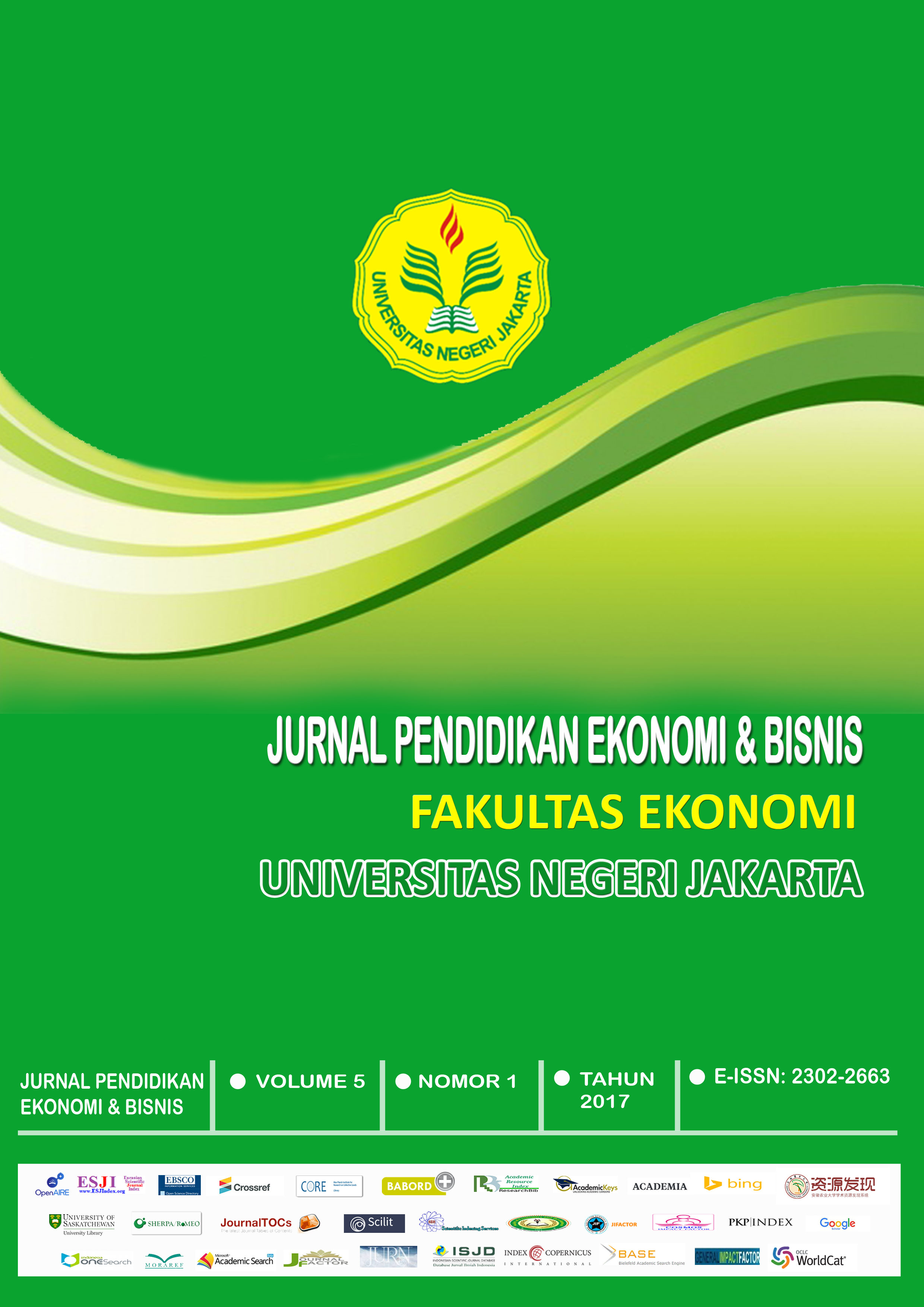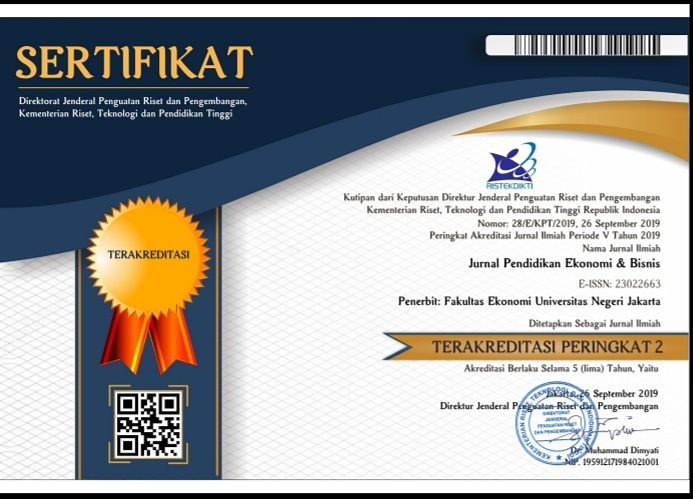Hubungan Pola Asuh, Kurikulum Kewirausahaan dan Intensi Berwirausaha Mahasiswa Fakultas Ekonomi Universitas Negeri Jakarta
DOI:
https://doi.org/10.21009/JPEB.005.1.1Keywords:
Pola Asuh Orang Tua, Kurikulum kewirausahaan, Intensi BerwirausahaAbstract
This study aims to find out: (1) the relationship between parenting and entrepreneurial intentions of students of the UNJ Economics Faculty; (2) the relationship between entrepreneurship curricula and entrepreneurial intentions of the students of the UNJ Faculty of Economics, and (3) the relationship between parenting and entrepreneurship curricula with entrepreneurial intentions of students of the UNJ Economics Faculty. This study uses a survey method with a correlation approach. Correlation approach is used to see the influence of the three independent variables, namely parenting and entrepreneurship curriculum that influence and are given the symbols X1 and X2, with the dependent variable entrepreneurial intention as being influenced and given the symbol Y. The results show that: (1) there is a correlation significant between parenting parents with entrepreneurial intentions of the students of the UNJ Faculty of Economics, where multiple correlation coefficients (Ry.12) = 0.359, F count (F Change) = 21.959, p-value = 0.000 <0.05, and coefficient of determination or R square = 0.129; (2) there is a significant correlation between entrepreneurship curriculum and entrepreneurial intentions of the students of the Faculty of Economics, UNJ, where the correlation coefficient X2 to Y = 0.343, F count (F Change) = 19.695, p-value = 0.000 <0.05, and coefficient of determination (R square) = 0.117; (3) there is a significant correlation between parenting style and entrepreneurship curriculum towards entrepreneurial intentions of the students of the Faculty of Economics UNJ where the results of the multiple correlation coefficient test (Ry.12) = 0.424, F count (F Change) = 16.122, p-value = 0.000 <0.05, and its determination coefficient (R square) = 0.180. With the model compatibility test, the hypothesis model is by the empirical model with the same value as stated that the model can be accepted.
Downloads
Published
How to Cite
Issue
Section
License
Articles in Jurnal Pendidikan Ekonomi & Bisnis are Open Access articles published under the Creative Commons CC BY-NC-SA License This license permits use, distribution and reproduction in any medium for non-commercial purposes only, provided the original work and source is properly cited. Any derivative of the original must be distributed under the same license as the original.








